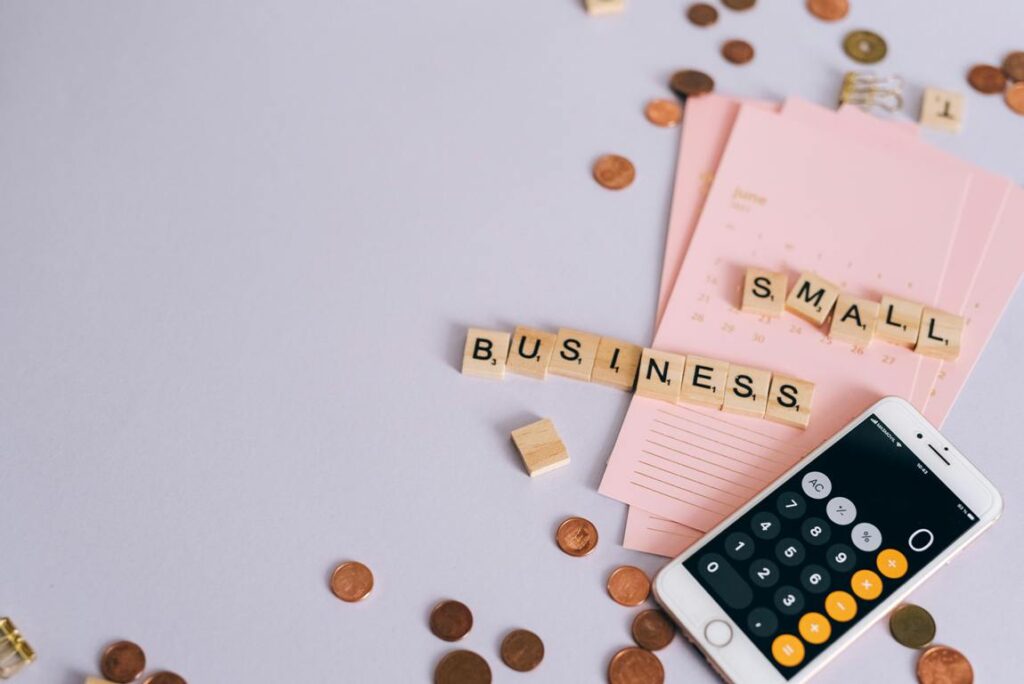Protecting Your Business from Uncertainty
As a small business owner, you’ve invested countless hours, resources, and emotions into building your company. However, despite your best efforts, unforeseen events can still occur, threatening the very existence of your business. This is where small business insurance comes in – a vital protection mechanism that helps mitigate risks and ensure business continuity.

In this comprehensive guide, we’ll delve into the world of small business insurance, exploring three essential policies that every small business owner should consider: General Liability Insurance, Professional Liability Insurance (E&O), and Business Property Insurance.
1. General Liability Insurance
General liability insurance protects your business from liability claims arising from:
Bodily injury: Physical harm or injury to customers, employees, or third parties.
Property damage: Damage to property owned by others, such as buildings, equipment, or inventory.
Personal injury: Non-physical harm, such as defamation, slander, or libel.
Benefits of General Liability Insurance:
Financial protection: General liability insurance provides financial protection against costly lawsuits and settlements.
Reputation protection: By having general liability insurance, you can demonstrate to customers and partners that you’re committed to protecting their interests.
Compliance: General liability insurance may be required by law or contract in certain industries or situations.
How General Liability Insurance Works:
Policy limits: General liability insurance policies have limits that define the maximum amount of coverage provided.
Deductibles: You may be required to pay a deductible before your insurance coverage kicks in.
Premiums: You’ll pay premiums to maintain your general liability insurance coverage.
2. Professional Liability Insurance (E&O)
The professional liability insurance, also known as errors and omissions (E&O) insurance, protects your business from liability claims arising from:
Professional negligence: Failure to provide professional services with the required level of care and expertise.
Errors and omissions: Mistakes or oversights in professional services, such as accounting, law, or medicine.
Benefits of Professional Liability Insurance (E&O):
Financial protection: Professional liability insurance provides financial protection against costly lawsuits and settlements.
Reputation protection: By having professional liability insurance, you can demonstrate to customers and partners that you’re committed to protecting their interests.
Compliance: Professional liability insurance may be required by law or contract in certain industries or situations.
How Professional Liability Insurance (E&O) Works:
Policy limits: Professional liability insurance policies have limits that define the maximum amount of coverage provided.
Deductibles: You may be required to pay a deductible before your insurance coverage kicks in.
Premiums: You’ll pay premiums to maintain your professional liability insurance coverage.
3. Business Property Insurance
Business property insurance protects your business from property damage or loss, including:
Buildings: Damage to or destruction of business-owned buildings.
Equipment: Damage to or destruction of business equipment, such as machinery, computers, or furniture.
Inventory: Damage to or destruction of business inventory, such as goods, materials, or supplies.
Benefits of Business Property Insurance:
Financial protection: Business property insurance provides financial protection against costly repairs or replacement of damaged or lost property.
Business continuity: By having business property insurance, you can quickly recover from property damage or loss and minimize business disruption.
Compliance: Business property insurance may be required by law or contract in certain industries or situations.
How Business Property Insurance Works
Policy limits: Business property insurance policies have limits that define the maximum amount of coverage provided.
Deductibles: You may be required to pay a deductible before your insurance coverage kicks in.
Premiums: You’ll pay premiums to maintain your business property insurance coverage.
Tips for Choosing the Right Small Business Insurance Policies
Choosing the right small business insurance policies requires careful consideration of your business needs, risks, and budget. Here are some tips to help you make informed decisions:
Assess your risks: Identify potential risks and hazards in your business, such as liability claims, property damage, or employee-related risks.
Evaluate your assets: Determine the value of your business assets, including property, equipment, inventory, and intellectual property.
Consider your budget: Determine how much you can afford to spend on insurance premiums and deductibles.
Research insurance providers: Compare insurance providers, policies, and rates to find the best fit for your business needs.
Common Mistakes to Avoid When Buying Small Business Insurance
When buying small business insurance, it’s essential to avoid common mistakes that can leave your business vulnerable to risks. Here are some mistakes to avoid:
Underinsuring: Failing to purchase adequate insurance coverage can leave your business vulnerable to financial losses.
Overinsuring: Purchasing too much insurance coverage can be unnecessary
NEXT: Verizon Phone Financing
Common Mistakes to Avoid When Buying Small Business Insurance
Overlooking exclusions: Failing to carefully review policy exclusions can leave your business vulnerable to unexpected risks.
Not reviewing policies regularly: Failing to regularly review and update your insurance policies can leave your business vulnerable to changing risks and circumstances.
The Importance of Small Business Insurance for Different Industries
Small business insurance is essential for various industries, including:
Retail and hospitality: Liability insurance, property insurance, and workers’ compensation insurance are crucial for retail and hospitality businesses.
Healthcare and medical services: Professional liability insurance, medical malpractice insurance, and workers’ compensation insurance are essential for healthcare and medical services businesses.
Technology and software: Cyber liability insurance, intellectual property insurance, and business interruption insurance are vital for technology and software businesses.
The Role of Small Business Insurance in Risk Management
Small business insurance plays a critical role in risk management by:
Transferring risk: Insurance transfers risk from your business to the insurer, providing financial protection against unexpected events.
Reducing risk: Insurance can help reduce risk by providing incentives for businesses to implement risk-reducing measures, such as safety protocols and security measures.
Mitigating risk: Insurance can help mitigate risk by providing financial support to help businesses recover from unexpected events.
The Future of Small Business Insurance
The future of small business insurance is likely to be shaped by several factors, including:
Technological Advancements
Advances in technology, such as artificial intelligence and data analytics, are likely to transform the insurance industry and provide more tailored and effective insurance solutions. For example:
Predictive analytics: Insurers can use predictive analytics to better assess risks and provide more accurate premiums.
Automated underwriting: Insurers can use automated underwriting to streamline the application process and provide faster approvals.
Digital platforms: Insurers can use digital platforms to provide more convenient and accessible insurance solutions.
Changing Risk Landscape
The risk landscape is constantly evolving, and small businesses will need to adapt their insurance coverage to address emerging risks, such as:
Cyber threats: Cyber attacks and data breaches are becoming increasingly common, and small businesses will need to consider cyber insurance to protect themselves.
Climate change: Climate change is leading to more frequent and severe natural disasters, and small businesses will need to consider insurance coverage for these types of events.
Supply chain disruptions: Supply chain disruptions are becoming more common, and small businesses will need to consider insurance coverage to protect themselves against these types of disruptions.
Increased Regulation
The insurance industry is likely to be subject to increased regulation, which may impact the availability and affordability of insurance coverage for small businesses. For example:
Insurance reform: There may be efforts to reform the insurance industry, which could lead to changes in the types of insurance coverage available to small businesses.
Consumer protection: There may be increased regulation focused on consumer protection, which could lead to changes in the way insurance companies interact with small businesses.
The Impact of Emerging Trends on Small Business Insurance
Emerging trends, such as the gig economy and the Internet of Things (IoT), are likely to have a significant impact on small business insurance. For example:
Gig economy: The gig economy is leading to more freelance and contract workers, which may require new types of insurance coverage.
IoT: The IoT is leading to more connected devices, which may require new types of insurance coverage to protect against cyber threats and other risks.
The Role of Insurance Brokers in Small Business Insurance
Insurance brokers play a critical role in small business insurance, helping businesses to navigate the complex insurance landscape and find the right coverage for their needs. For example:
Risk assessment: Insurance brokers can help small businesses assess their risks and identify areas where they may need additional insurance coverage.
Policy selection: Insurance brokers can help small businesses select the right insurance policies for their needs, taking into account factors such as budget and risk tolerance.
Claims support: Insurance brokers can provide support and guidance to small businesses in the event of a claim, helping to ensure that the claims process is as smooth and efficient as possible.
Conclusion
Small business insurance is a vital protection mechanism that helps mitigate risks and ensure business continuity. By understanding the different types of insurance policies, their benefits, and how to choose the right policies for your unique business needs, you can safeguard your business and achieve long-term success.




